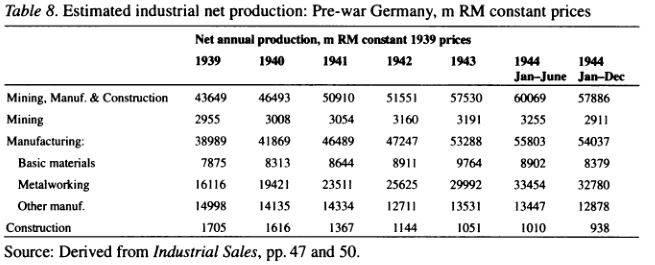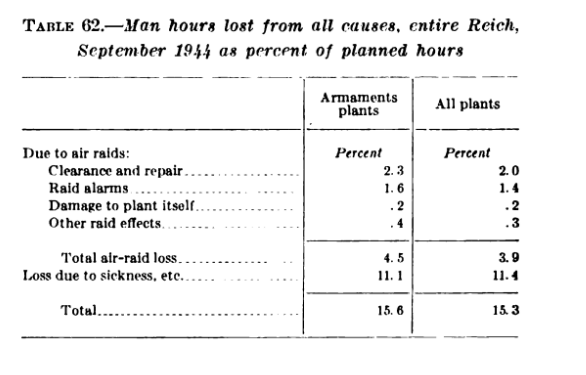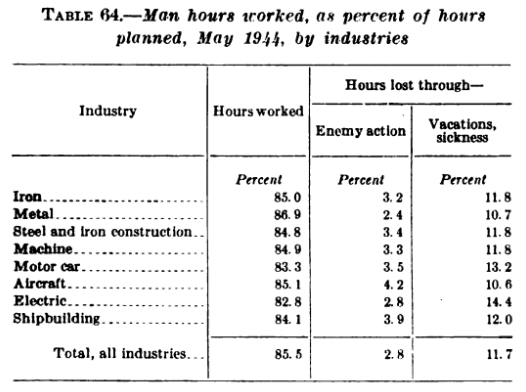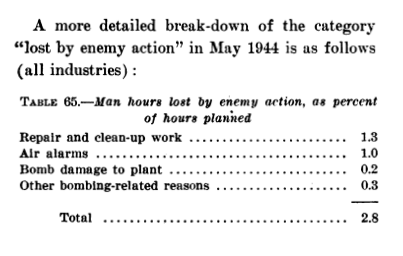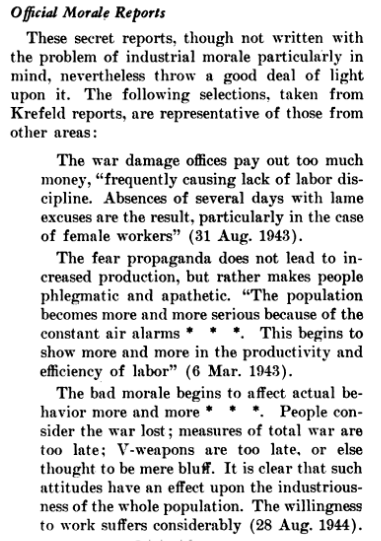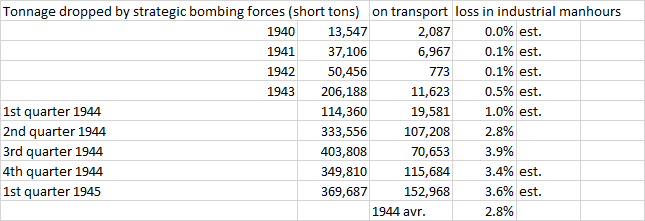The question is, why there was such general collapse? Some people might point out to strategic bombing but it did not start in the second half of 1944, in fact the monthly tonnage dropped over Germany in the 1st half of 1944 was already about 80,000 short tons, while in the first 4 months of 1945, it was 110,000 short tons. By 1945 they were dropping bombs over the craters of bombs dropped way earlier. Anyway, if the monthly rate of 80,000 tons of bombs didn't actually lower German industrial production (perhaps decreasing the speed in which it increased) then a monthly dropping of 110,000 tons of bombs cannot explain a general industrial collapse, when output of steel collapsed from 2.7 million tons in march 44 to .6 million tons in February 1945.
While territorial loss also helps to explain why it collapsed since the Grossraum was effectively an integrated economic sphere by early 1944 and that was perhaps the main reason why the continental European economy did not collapse as hard in WW2 compared to WW1:

So, when the Allies started taking out parts of the Grossraum the whole economic structure began to unravel, including it's German core.
Another reason, that was suggested by Harrison in 1988, was that after the defeat in Bagration, the German economy became over-mobilized to an unsustainable level which lead to a general economic collapse. Similar to the collapse of Austria-Hungary in WW1, also the product of excessive mobilization of manpower. However I am unconvinced by this proposition because the level of mobilization did not increase by mid 1944 and the industrial labor force, while it decreased a little bit, did not collapse. So the causes of collapse were perhaps distinct from Austria-Hungary in WW1.
The writers of the USSBS themselves also admitted that they don't know how explain why the general industrial collapse happened.
But, reflecting on a point made by Albrecht Ritsch regarding Germany's war effort in WW1, I think I have a good solution to the riddle: German industrial production, after increasing almost continuously up to mid 1944, collapsed afterwards, that was by choice. It's essentially the same reason why massive numbers of soldiers surrendered to the WAllies after the Normandy breakout: the war was lost, there was no point in making an effort because it was futile. So the German labor force also perceived, even if they were not entirely conscious of it, from the news from the collapsing front-lines combined with the fact that strategic bombing showed to the population that their regime failed to protect their heads, that their continued effort was futile and therefore the whole industrial structure began to unravel: "why work hard if there is no point, since victory is no longer feasible?", therefore, they choose to reduce effort (to the degree in which they were not punished for doing so), which reduced the supply of ammunition for the armed forces and hence lead to the faster collapse of the frontlines in 1945. Yes, by January 1945 the Wehrmacht lacked the ammunition stocks (worth less than 2 months of supply) to continue to operate as an effective fighting force, their defeats after January 1945 were perhaps more of a consequence of their absolute lack of supplies to maintain operations rather than of the martial merits of the advancing enemies.
